TRANSFORMING TOMORROW













MESSAGE FROM THE BOARD














MESSAGE FROM THE BOARD
As the psychologist Abraham Maslow wisely observed, “In any given moment, we have two options: to step forward into growth or step back into safety.”
These words resonated throughout the past year as we made many essential changes at the Alzheimer Society of Canada (ASC). It was a year of innovative thinking. Of bold steps. And one that aimed to transform the future of people affected by dementia.
Over the past 12 months, we built meaningful partnerships, welcomed new Board members and worked to establish ourselves as the leading voice for Alzheimer’s disease and other forms of dementia. All this while driving our mission through clinical research, a supportive care community, and multi-pronged advocacy to give people in Canada access to the highest standard of dementia treatments and support.
As Canada’s foremost health charity supporting people with dementia, we invested in transformative research through our Alzheimer Society Research Program (ASRP). Our goal is to unravel the complexities of dementia to improve treatments and pave the way toward a cure.
This past year, we also gained valuable insights into the impact of our research. In early 2024, we published the second of our Landmark Studies, which employs data modelling to project the future of dementia nationwide. Landmark 2: The Many Faces of Dementia in Canada explores our diverse population, ensuring everyone is valued and included.
Advancing diversity, equity and inclusion is central to our mission—and ASC is a prominent advocate for health and policy reforms nationwide.
We are deeply grateful for the unwavering support of our donors, partners and volunteers. Your contributions were instrumental in our journey towards a Canada where people with dementia and their caregivers are supported, quality of life is enhanced, and dementia is understood, prevented and effectively treated.
Thank you for your unwavering commitment as we continue to forge a more robust path and transform the future for people in Canada who are affected by dementia.
ASC Board of Directors

We had some standout moments last year. Here’s a brief overview of how we expanded our impact through research, support and advocacy across Canada.
10 Changing Lives Through Research
Meet the pioneering minds making strides in Alzheimer’s research and learn about research programs bringing us closer to a future free from dementia.
16 Forging Partnerships
As we look forward to an exciting new year, we reflect on some remarkable joint achievements in 2023.
18 Advocating For a Brighter Future
As a prominent voice at all levels of government, we advocated for the rights of people with dementia and their caregivers across the country.
20 Taking The Pulse of Our Communities
Through our second Landmark Study, we found ways to understand dementia in Canada better — and ensure no one is left behind.
22 Financial Reporting 24 Our Incredible Donors
We celebrate the vital contributions of our donors and their role in our mission to end Alzheimer’s disease and other dementias.
28 Leaving a Legacy
Last year, we found new opportunities to make lasting contributions — and pledge their support for future generations.


The Alzheimer Society of Canada is the leading national health charity for people living with Alzheimer’s disease and other forms of dementia. We fundraise to advance research, advocate for health and policy changes, and partner with Alzheimer Societies in every Canadian province to offer programs and support services. We are also connected to partners in countries worldwide as a member of Alzheimer’s Disease International
A world without Alzheimer’s disease and other dementias.
To alleviate the personal and social consequences of Alzheimer’s disease and other dementias and to promote the search for causes, treatments and a cure.
Board of Directors 2023-2024
Christine Penney, Chair
Andrea Seymour, Vice Chair
Ray Bisson
Phyllis Fehr
Lynn Murray
Robert Piasentin
Luc Pinard
Farhad Sethna
Shelley Shillington
Dr. Roger Wong
Darcy Yamada

“THEY GOT ME ON THE RIGHT PATH AND GAVE ME THE INFORMATION THAT I NEEDED.”
CARE PARTNER, NEW BRUNSWICK
We had some standout moments last year and are working to make even more impact as we forge new paths in the year ahead.

WE STEPPED UP The IG Wealth Management Walk for Alzheimer’s brought together 20,000 participants nationwide and raised $6.2 million.
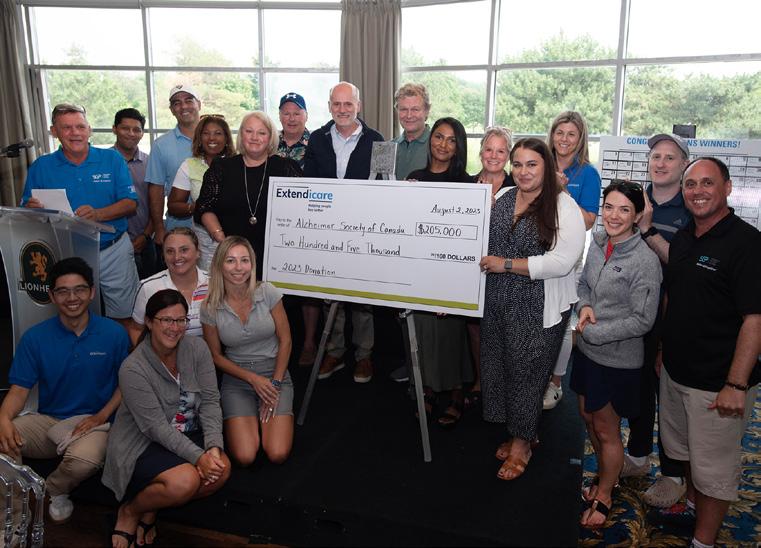
WE TOOK A BIG SWING
In August 2023, Extendicare held its 10th Annual Charity Golf Classic to support the Alzheimer Society of Canada, raising over $200,000.

WE STUDIED OUR COMMUNITIES We published Landmark 2: The Many Faces of Dementia in Canada to gain insight into the demographic, social and economic impacts of dementia.


WE INVESTED IN TOMORROW
Thanks to our generous donors and funding partners, we funded more than $5.7 million in new research.
WE CREATED RESOURCES

WE EMPOWERED YOUNG CAREGIVERS
We helped medical professionals communicate dementia diagnoses via our new National Dementia Guidelines.
We created a new hub to provide young caregivers with information, resources and a shared community.
The Alzheimer Society Research Program (ASRP) stands at the forefront of dementia research funding in Canada. Our mission is to deepen our understanding of dementia’s causes, which is vital for enhancing treatments and moving toward a cure.
We empower top researchers to translate their innovative ideas into real-world progress, bringing us closer to a future free from Alzheimer’s disease and other dementias. Here’s a snapshot of our achievements over the past year:
In 2023, we funded more than $5.7 million in new research initiatives, marking a significant increase from $3.5 million in 2022. This progress was made possible through the generous support of donors and funding partners such as the Brain Canada Foundation, Canadian Institutes of Health Research – Institute of Aging and Research Manitoba
Our research funding focuses on eight critical areas:
The ASRP supports dementia research across Canada through four key award categories:
RESEARCH PROJECTS SUPPORTED
In the past year, we funded 44 new research projects across Canada:
15 PROOF OF CONCEPT GRANTS

9 NEW INVESTIGATOR GRANTS

11 DOCTORAL AWARDS

9
POSTDOCTORAL AWARDS
NATIONAL REACH
Our research grants spanned the country:
Last year, the Alzheimer Society of Canada (ASC) launched two new online programs to support two critical groups: young caregivers and health-care providers supporting people affected by dementia. These initiatives mark significant strides in providing essential resources to those who need them.
Did you know that a staggering 1.25 million* people in Canada aged 15 to 24 are currently young caregivers? For those young people supporting family and friends living with dementia, the challenges can be overwhelming— affecting their physical and mental well-being.
In response to this need, ASC created a space alongside those with lived experience called the Young Caregivers Hub. It offers people a place to gather information, resources and advice— connect with others who share similar experiences.

Since its launch earlier this year, the Hub has received overwhelmingly positive feedback, underscoring its importance in supporting and fostering community.
*Young Caregivers Association
WHAT PEOPLE ARE SAYING ON SOCIAL MEDIA
“This is so important. Young caregivers often suffer in silence; this provides a space for support and hopefully collaboration.”
“This
is amazing! So beneficial for young caregivers and a great way to create an awesome support group! It’s much needed!”
Receiving or delivering a dementia diagnosis is highly complicated. Half of those affected by dementia have reported dissatisfaction with the disclosure process, and many health-care providers find it one of the most challenging parts of their work.
To improve this crucial conversation, we partnered with the College of Family Physicians of Canada and the Canadian Consensus Conference on the Diagnosis and Treatment of Dementia to create the National Dementia Guidelines.
Supported by funding from the Public Health Agency of Canada, these guidelines (complementing a set of new tools) help family physicians, specialists and nurse practitioners communicate dementia diagnoses more effectively.
This project also includes a cultural focus on the Black and Chinese communities— two large groups in Canada—addressing their unique learning and cultural needs. By incorporating perspectives from diverse health-care providers and individuals with lived experience, we aim to create a more comprehensive approach to dementia diagnosis and communication.
In the coming year, we plan to offer additional information, online courses and toolkits to further improve communication pathways for people affected by dementia and health-care providers.



Thanks to the support of our donors, we fund research that’s leading to better outcomes for people with Alzheimer’s disease and other dementias. Here’s a look at a few of the brilliant researchers we supported this past year:

Health issues such as high blood pressure and high cholesterol are known to increase the risk of Alzheimer’s disease.
However, no one knows whether these conditions (vascular risk factors) increase the risk by directly causing the accumulation of proteins related to Alzheimer’s disease in the brain or causing cognitive decline in other ways.
Funded by ASC, Arthur Cassa Macedo, a doctoral trainee under Dr. Pedro Rosa Neto, will investigate how these cardiovascular risk factors might affect Alzheimer’s disease and whether these conditions contribute to the accumulation of
harmful proteins in the brain associated with Alzheimer’s disease.
Understanding this could lead to better treatment options for people with dementia, potentially improving their quality of life.
“My research aims to untangle a topic that has puzzled experts for years,” says Macedo. “By applying innovative methodologies, we aim to demonstrate how addressing common cardiovascular risk factors in older adults can prevent and treat dementia.”
Thanks to the generosity of our donors, this research could enable us to make a positive difference in many lives.
Says Macedo: “This research is only possible with the support of donors that contribute to our science.”
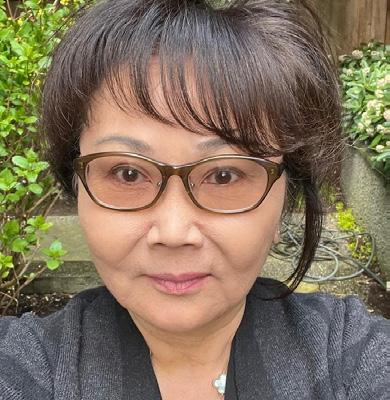
While most of us wipe away our tears, a group of researchers led by Joanne Matsubara want to study them—to enable earlier diagnoses of Alzheimer’s disease.
Alzheimer’s disease is challenging to diagnose early because the tests can be expensive and uncomfortable. However, with new treatments that could slow down the disease’s progression, early diagnoses will be life-changing.
With funding from ASC*, Matsubara will study tiny pieces of genetic material called microRNAs that control how proteins are
made. In people with diseases, these microRNAs often change. And since they are found in many body fluids, the team expects to see them in people’s tears.
“We want to create an easy way to detect Alzheimer’s disease early by analyzing the tear fluids of the eye,” says Matsubara. “Finding specific signs of Alzheimer’s in tear fluids could help us identify the disease in a simple and accessible way in clinics.”
Matsubara is grateful for the support of ASC and its donors, who have made her research possible.
Says Matsubara: “We would like to say a big thank you because, without your funding, we cannot translate our ideas into research, which will help with early diagnosis.”
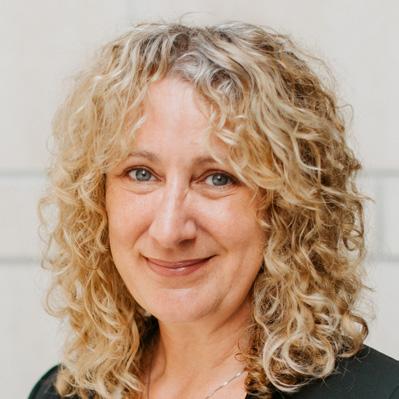
Did you know changes in the levels and activity of bacteria in our digestive systems may be partially responsible for the cognitive decline that leads to dementia?
While we know that physical activity and diet can affect the levels of bacteria, we don’t know whether these changes will also be associated with positive changes in cognition.
With funding from ASC*, Krista Power and her team seek to understand if healthy lifestyle programs can improve thinking abilities and whether positive changes in the levels and balance of bacteria are responsible for these improvements.
“Delaying dementia by two years could reduce dementia cases by one-third over 30 years,” says Power. “People at high risk of dementia but with no measurable cognitive decline do not usually receive health care. Therefore, reducing risk by improving the gut microbiome through a healthy lifestyle could be an ideal approach to reducing dementia risk in this group.”
Power’s interest in dementia research stems from her own experience of losing a family member to Alzheimer’s disease, and she is grateful for the opportunity to fund her research.
*Co-funded by Brain Canada
We are so grateful for your support as we invest in transforming tomorrow for people living with dementia—and those who care for them. Your generosity and dedication have made a significant difference in the lives of many. As we gear up for an exciting year, we reflect on some of our notable joint achievements in 2023.
The IG Wealth Management Walk for Alzheimer’s is Canada’s largest fundraiser for dementia and is ranked the fifth-best walk/run in the country.
Last May, 20,000 participants united nationwide to champion hope and support for those living with dementia. We exceeded our fundraising goal, amassing $6.2 million to support life-changing programs and services offered through the
Alzheimer Societies of Canada.
Since 2015, the Walk has raised over $47 million for the more than 650,000 people affected by dementia in Canada. It also raised awareness through various media channels, including television, radio, print, digital and social media.
We are grateful to our title sponsor, IG Wealth Management, for their vital support in making this event possible.
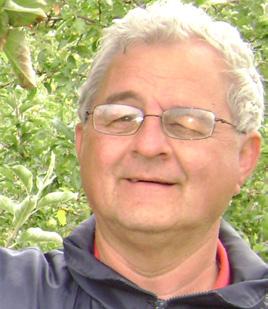

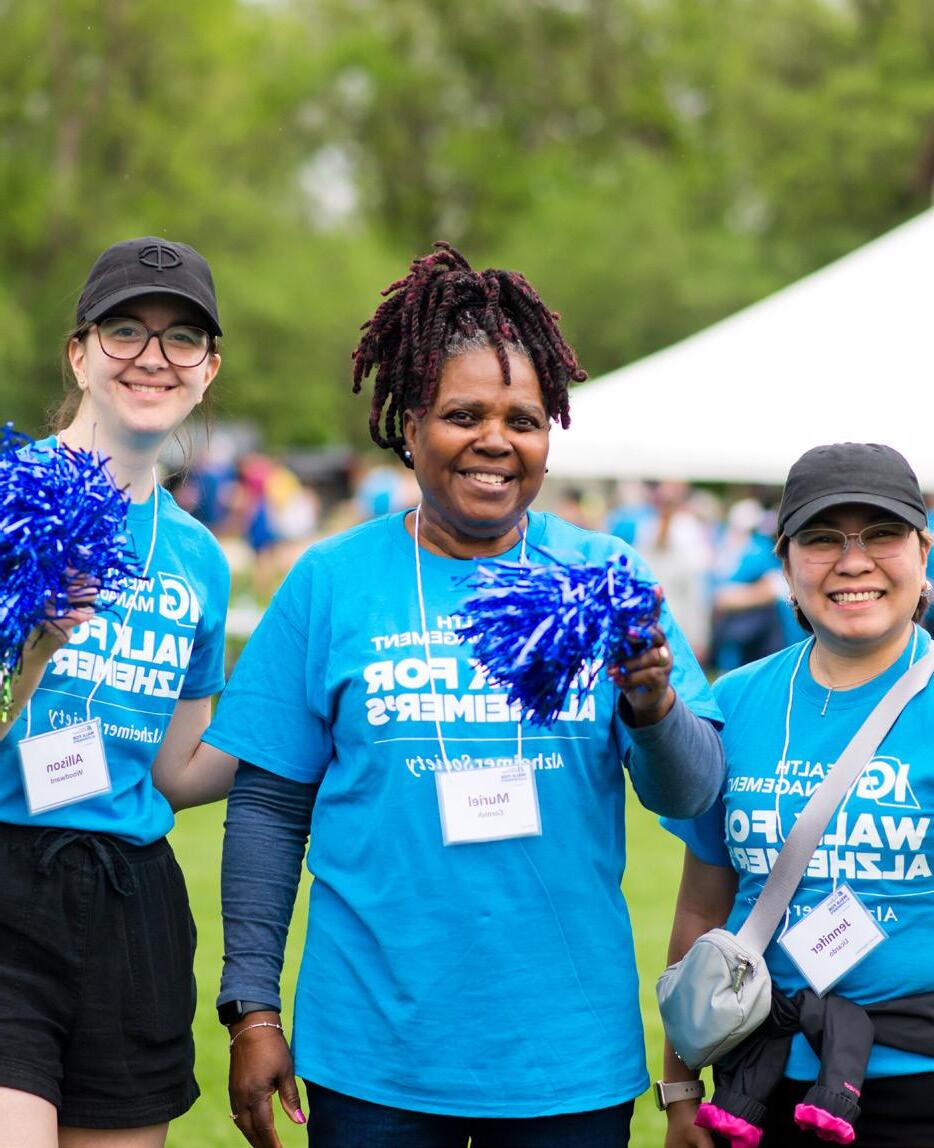
“I walk for Alzheimer’s in memory of my mom, Stella—a quiet lady who loved to do things for her family. I walk to raise money so families can get the help they need from the Alzheimer Society.”
~ Ernest, walking for the Alzheimer Society of Grey Bruce
“My mom was a smart, kind, loving woman whose laughter lit up a room. When she was diagnosed at the age of 47, my brother and I were teenagers. The Alzheimer Society was there to provide programs and essential guidance. Now I walk to remember my mom, to help ensure others receive this indispensable assistance, and to show my gratitude to the Alzheimer Society for all they do.”
~ Anne, walking for the Alzheimer Society of Niagara
Making sense of a dementia diagnosis can be overwhelming. Our First Link® program is available to ease the challenge by giving people affected by dementia access to community-based services and programs.
Established in 2002, First Link operates across all provinces. It offers comprehensive support, including one-on-one or group services, referrals to local health-care providers, and assistance with future care planning.
To better support the increasing numbers of people in Canada affected by dementia, we made significant enhancements to the program last year:
1. In January, during Alzheimer’s Awareness Month, we launched a National Awareness
Campaign to tackle critical challenges the First Link program faces. Our goals were to increase understanding among health-care professionals and to improve connections to support services for those newly diagnosed with dementia.
2. We partnered with a network of primary healthcare clinics, distributing information about First Link to 232 practices nationwide. This collaboration underscores the importance of referring people to our program, ensuring a supportive and inclusive community for those navigating dementia.
3. We partnered with the University of Waterloo’s Geriatric Health System Research Group (GHS), which delivered the First Link Impact Report in July 2023.
Here are some study highlights:
• About 67 per cent of participants referred by health-care providers connected with ASC within six months of diagnosis, as opposed to 50 per cent of self-referrals.
• More than half of the participants felt more confident managing their health after referrals to First Link.
• Sixty per cent of caregivers felt better prepared and had increased confidence in their caregiving ability due to First Link.
• Approximately 58 per cent of participants reported improved stress management with the program.
We are grateful to the Slaight Family Foundation, which helps the First Link program thrive—and ensures no one faces dementia alone.
In August 2023, we celebrated a milestone as Extendicare Canada held its 10th Annual Charity Golf Classic. This year, they raised over $200,000 to support ASC, reflecting our shared dedication and commitment.
Over the past decade, our collective efforts have raised more than $1.3 million. All proceeds from the event go to the Alzheimer Society of Canada’s Research Program (ASRP) to provide funding to brilliant researchers working toward advancing our understanding of dementia.
We extend our heartfelt thanks to Extendicare for their invaluable support.
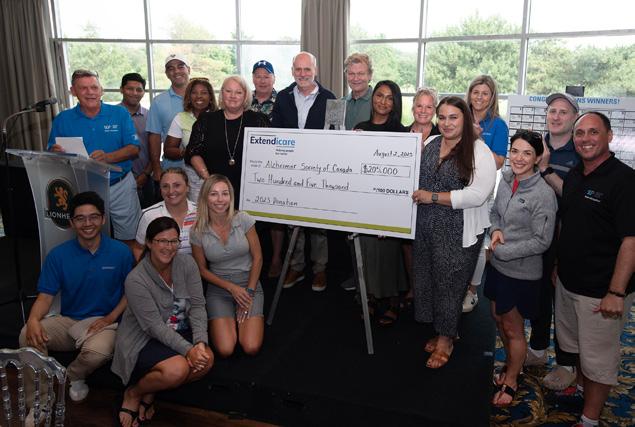
Last year, the Alzheimer Society of Canada (ASC) made strides in advocating for the rights of people with dementia and their caregivers. As a leading voice to the federal government, our efforts have paved the way for a hopeful future. Here’s a snapshot:
With renewed determination, we dedicated ourselves to ensuring that the voices of those affected by dementia were heard nationwide. Our commitment to influencing federal policies means we are relentless in our advocacy for practical funding decisions that benefit people living in Canada.
We prioritized educating federal ministries, government agencies and politicians from all parties on the findings of Landmark 2: The Many Faces of Dementia in Canada. This comprehensive research project offers a projection of dementia’s impact on people in Canada from 2020 to 2050. The report highlights how dementia affects people nationwide and has
broad policy and program implications across health, social care, housing and labour.
The National Dementia Strategy acknowledges the barriers to equitable care and identifies highrisk populations, many of which are highlighted in our Landmark Study. While progress is being made, much work remains to be done. We are advocating for increased investment in national guidelines, research and new strategies to improve the lives of those with dementia and their caregivers. The report’s recommendations outline how we can work together to support people affected by dementia.
We made significant strides in raising awareness through our various

channels. Our website, alzheimer.ca, is invaluable for comprehensive information on care, support and research. This past year, we’ve seen a significant increase in engagement, reflecting a heightened interest in our work. Additionally, we harnessed the power of social media platforms such as Facebook, LinkedIn, YouTube and X to share important information such as our Landmark Study, National Dementia Guidelines and Young Caregivers Hub.
To date, there have been no medications capable of reversing Alzheimer’s disease. The most recent drug approvals—over a decade ago—focused on managing symptoms rather than halting disease progression.
The first two new disease-modifying drugs, Lecanemab and Donanemab, were submitted to Health Canada for approval. If approved, they will mark a significant breakthrough. These drugs have shown promising results in slowing cognitive and functional decline.
Over the past year, ASC conducted two online surveys—one for patients and one for caregivers— to ensure their experiences inform our advocacy of our communities. Their feedback on the possibility of receiving these new treatments has been highly positive:
• Used words like “hope” and “life-changing” when talking about these drugs.
• Talked about retaining aspects of quality of life such as independence, living at home longer, engaging in daily activities and more meaningful time with family.
• Spoke about the potential to reduce fear, anxiety and stress—and gain happiness and confidence.
• Spoke about the positive impacts it could have on their relationship with the person living with dementia.
• Talked about financial factors, including reduced care needs and costs and the ability to retain employment levels.
• Lauded the emotional benefits (reduced stress, worry and family tension) and the hope of extending the time and quality of life with the person they support.

People living in Canada with dementia are a diverse group. To better understand dementia nationally, the Alzheimer Society of Canada undertook an in-depth study to ensure we can serve the needs of all those who need and provide care.
In January 2024, we released Landmark 2: The Many Faces of Dementia in Canada. This report (the second of three) details the demographic, social and economic impacts of dementia on people nationwide, including differences in ethnicity, race, sex, gender and age. Here’s what we discovered:
The number of people living with dementia in Canada is projected to surge by 187 per cent from 2020 to 2050, underscoring the urgent need for proactive measures.
• More than 1.7 million people will be living with dementia by 2050.
• By 2050, the number of people of Indigenous ancestry living with dementia in Canada is expected to increase by 273 per cent, from 10,800 to 40,300.
• By 2050, almost one out of every four people who develop dementia in Canada will be of Asian origin.
• In 2020, an estimated 61.8 per cent of people living with dementia in Canada were female, and more than half of care partners were women.
• Young onset dementia (affecting people under age 65) presents unique and often overlooked challenges, such as delayed diagnoses and difficulty in obtaining workplace accommodations.
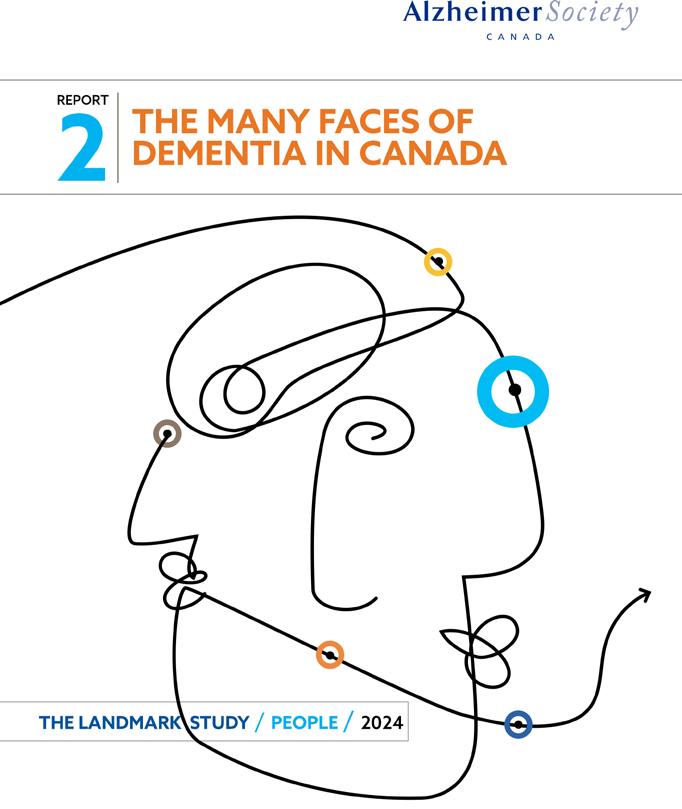
Our findings point to the danger of failing the rapidly growing number of people affected by dementia if services and supports are not adapted to their unique needs.
The report lists actions Alzheimer’s Societies, health-care providers, researchers, and governments can take to better support and understand dementia in diverse communities. It also offers suggestions on how to tackle the gender gap and young-onset dementia.
BY THE NUMBERS DID YOU KNOW?
PEOPLE ARE CURRENTLY LIVING WITH DEMENTIA IN CANADA
THE NUMBER OF PEOPLE LIVING WITH DEMENTIA IN CANADA IS EXPECTED TO INCREASE BY 187% FROM 2020 TO 2050
MORE THAN 50 DIFFERENT DISEASES OR CONDITIONS CAN CAUSE DEMENTIA MORE THAN 650,000
THE NUMBER OF INDIGENOUS PEOPLE LIVING WITH DEMENTIA IN CANADA IS PREDICTED TO SURPASS
40,300 BY 2050 A 273% INCREASE

THE NUMBER OF PEOPLE OF AFRICAN ANCESTRY LIVING WITH DEMENTIA IN CANADA IS PREDICTED TO SURPASS
29,100 BY 2050 A 507% INCREASE
THE NUMBER OF PEOPLE OF LATIN, CENTRAL AND SOUTH AMERICAN ANCESTRY
LIVING WITH DEMENTIA IN CANADA IS PREDICTED TO SURPASS
IN 2020, AN ESTIMATED 61.8% OF PEOPLE LIVING WITH DEMENTIA IN CANADA WERE FEMALE
BY 2050, PROJECTIONS SHOW THAT OVER 1 MILLION WOMEN WILL BE LIVING WITH DEMENTIA IN CANADA BY 2050, 1 IN 4 PEOPLE WHO DEVELOP DEMENTIA IN CANADA WILL LIKELY BE OF ASIAN ANCESTRY A 785% INCREASE MORE THAN 1.7 MILLION PEOPLE ARE LIKELY TO BE LIVING WITH DEMENTIA BY 2050
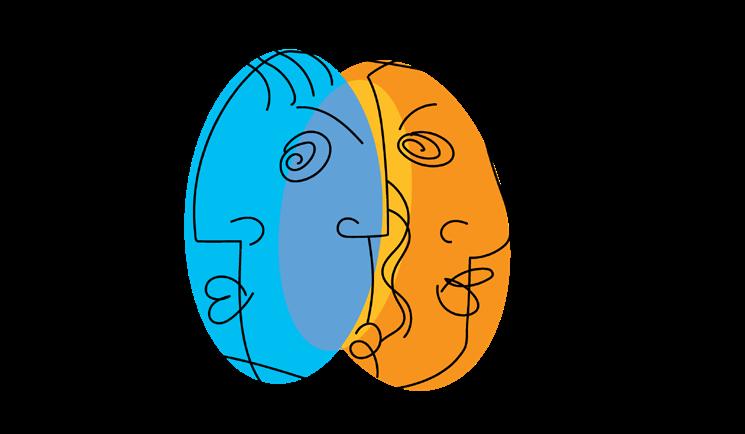
18,500 BY 2050 A 434% INCREASE

LAST YEAR, WE RAISED: $33,113,952 PROGRAMS: $19,237,712 RESEARCH: $4,600,050

YOU KNOW?
Every four minutes, someone is diagnosed with dementia.
One million people in Canada will be living with dementia by 2030, nearly twice the current number.
One in three people in Canada will become a caregiver to someone living with dementia by 2031, which will almost triple by 2050.
With the generous donations of our incredible supporters, we raised more than $1.7 million in monthly gifts last year.
DONATING MONTHLY:
• Streamlines donations to reduce administrative time and allow more money to go directly to Alzheimer’s initiatives.
• Provides ASC with stability.
• Allows donors to plan their giving and maximize their impact.
As we pursue our work to end dementia, we are so grateful for the monthly gifts of our supporters.
“My mother suffered the cognitive, physical and emotional effects of dementia. One of the most challenging aspects of the journey [as her caregiver] was trying to get the medical profession to listen to me when she could not speak for herself. I have many hopes for the work you do in support, education and research. Thank you!”
~ Olivia
“My mother-in-law came to live with us when she was 89. We attended Alzheimer Society support groups that helped us understand what was happening and what to expect so that we could provide the best possible care for her. I give monthly to ensure that the excellent support we receive is there for others.”
~ Sally
“As the population ages, there are more and more people who are going to face dementia. And they should not have to face it alone. I give to the Alzheimer Society of Canada to help them fund research and provide help to people who need it.”
~ Bernard

We appreciate the support of everyone who donated to the Alzheimer Society of Canada this past year. As we transform tomorrow, we hope to raise even more funds to help people in Canada affected by dementia.
$1,000,000+
Employment and Social Development Canada
$500,000–$999,000
Brain Canada
IG Wealth Management
Public Health Agency of Canada
$250,000–$499,999
Canadian Institutes of Health ResearchInstitute of Aging HealthPartners
$100,000–$249,999
Benefaction
Extendicare
June Dewar
K.L. & N. Truong Family Research Manitoba
S.E. Holdings
The June Towle Charitable Trust
William and Odna McCarlie Foundationn
$50,000–$99,999
Achieva Health
Kearns & Larouche Fund
The Warren Y. Soper
Charitable Trust
Waywayseecappo First Nation
$25,000–$49,999
Eileen Janet Martin
Ethel V. Leaver Foundation
Kenny and Sandy Gordon Foundation
Ledcor Industries Inc
Margo Enns
Nancy Dorey
Oakville Community Foundation
Tetris Holdings Ltd.
The David Hearn Foundation
United Way Greater Toronto
$10,000–$24,999
9315-1876 Quebec Inc
Alois Schoen
ATCO Electric - Distribution
Basil F. McDonald
Bayshore Foundation
Bill Saul
Bob Collier Foundation
Constance Ryan Fund
Daniel Angle
Delta Elevator
Dennis Timej Fund
E.J. Knight
Elizabeth De Rooy
Francis Martin Thrasher
George Fink
Greg Norwich
Guy Verschelden
Hobbes & Mortimer Foundation
Jean-Yves Desharnais
John Pym
Joseph R. Lowe
Kelly Patrick and Sophie
Palmer Foundation
Luc Vanneste
McCaw Holdings Limited
Michel Baby
Moneybroker Canada Inc.
Pamela Houwing
Pauline Verschelden
Peter Albert
Peter Ivanoff
Raymond James Canada Foundation
RBC
Rebecca Detje
Retired Teachers of Ontario
Rob and Jane Merchant
Charitable Foundation
Robert Sauvé
The Barber Family
Charitable Foundation
The Caroline Wight Trust
The Holger & Claudette
Kluge Family Foundation
ThomasTait
Waves Foundation
William Hunter
William Klement Fund
William Stewart
$5,000–$9,999
Abundance Canada
Algonquin Paper
Alpema Foundation
Anita Fernandes
Antonietta Di Mondo
Archibald and Lavina
Knight Fund
ATCO EPIC - Employees Participating in Communities
Austin Sweet
Bright Lights
Caisse de bienfaisance CN Employees’ & Pensioners’ Comm Fund
Carol Stening
Charities Aid Foundation of Canada
CHIMP: Charitable Impact Foundation (Canada)
Colinco Holdings Limited
Congregation De Soeurs
Maristes
Costco Wholesale
Diane Giguère
Erica Richler
Fenella E. Lane
Frank Sturino
Galina Souranko
George S. Mangolt
Glen Hanks
H. Philip MacLennan
Harold Giles
Heath Thomlinson
Horn Family Fund
Hunt Family Charitable Foundation
Ingrid Rasmussen
Irene Godbout
J. Montgomery
Janice McDonald
Jim & Betty Anderson Fund
Jim Sterling
Joan McCaw
Joanne Simpkin
John Kerwin
John, Geeling
Joseph Jacobson
Julia Rakonjac
Katherine Parker
Leon’s Furniture Ltd.
Lloyd Rebello
Lorne Peters
MAJIC Foundation
Marie McGuire
Marie-Claire Vincent
Marion Macdonald
Michael Shackell
Nona Mary Heaslip
Odette Turner
Orville Sinnott
Popkin Family Charitable Account
Robert Kidd
Robert Laird
Robert Shirlow
Robert Sutherland
Rocky Mountain
Charitable Giving Fund
Roger Balm
Sandy Moore
Sherry Jensen
Soeurs Missionaires de Notre-Dames Des Anges
Stephen Kennedy
The Cadillac Fairview Corp Ltd.
The Ferbey Family Popeyes Supplements
Canada
The Philip Smith Foundation
The Tenaquip Foundation
The William & Nona Heaslip Foundation
Thomas & Erika Winiker
United Way East Ontario
Victor Tucker
William A. & Judy Trojan
William James Vella
This list recognizes those who supported the Alzheimer Society of Canada between April 1, 2023, and March 31, 2024, with a gift of $5,000 or more. We can’t thank you enough for your support.
Dementia stands as one of the most pressing health challenges facing Canada’s aging population. By 2050, more than 1.7 million people in Canada will be living with dementia. We must strive to delay its onset and actively work towards its prevention.
By including the Alzheimer Society of Canada in your will through a legacy gift, you can help bring hope and transform the future for families nationwide. Just imagine the impact you can make.
Thanks to the generosity of our extraordinary donors, we raised over $4.2 million in legacy gifts last year.
Legacy donations enable us to expand our programs and services, Change to: support those affected by dementia, fund innovative research, advocate for meaningful change and raise nationwide awareness.
Last year, we found new opportunities for people to make lasting contributions—and pledge their support for future generations. One of these opportunities is the relaunch of the Circle of Hope, an esteemed group of donors that has included the Alzheimer Society of Canada in their wills and estate planning.
As we excitedly look forward to the new year, we want to take a moment to express our deep gratitude and appreciation for our wonderful legacy donors of 2023.
Albert John Smith
Allan Stein
Barbara Ann Sutherland
Barbara Helena Simpson
Bernadette Girard Brochu
Betty Isabel Reynolds
Catherine Stock
Connie M. Zweng
Craig Brooks
David Greatrix
Desmond Sullivan
Dorothy Janet Duncan
Dr. Gloria Mauro
Edeltraud Alexander
Eileen Dorothy Connor
Elizabeth Doran
Erika Knipfel
Ernest Bradshaw
Esme Raaijmakers
Eve Holdway
Eve Sevack
Francis G. Vetsch
Frederick Manson
Gabrielle Turbide
Garry McFarlane
Gary G. Vamplew
Gaston Blais
Gertrude Waldie
Inger Stene
Isabella Emaline Broomhead
Jacqueline Margaret Mary Young
Jean Ann Connor
Jean McIlraith Galbraith
Joan Pitfield
John Burton Mitchell
John D. Fudge
John W. Sanders
Joseph Buchshriber
Josephine Mary Campanella
Joyce Tynan-Byrd
Lorane Steiman
Lucille Crégheur
Lynn Kosloski
Margaret Louise Jacobsen
Margaret McKee
Mary Bagg
Mary Louise Henderson
Melba Frances Mulholland
Olive Berniece Allen
Patricia Ann Caroline McPhee
Patricia Hall
Reginald ‘Harvey’ Hurrell
Robert Picard
Rodney Talmage Palmer
Roland Mansel
Ruth Baker
Ruth Deyman
Sandra Donovan-Barton
Sheila Maher
Shirley Ann Lash
Susan Elizabeth Dew
Susan Helen Armstrong
Terence Morton Heaps
Thérèse White
Thomas John Wood
Wilhelmina Vander Torre
William H. Bernhardt
William Stanley Edwards
Wilma Cecelia Wilhelm
This list recognizes those who gave a Legacy Gift to the Alzheimer Society of Canada between April 1, 2023, and March 31, 2024. We are beyond grateful to these donors and their families.

As we look back on 2023, we acknowledge the invaluable contributions of our generous donors, supportive partners and dedicated volunteers.
We are grateful to everyone who has supported our mission: to alleviate the personal and social impacts of Alzheimer’s disease and other dementias and to advance the search for causes, treatments and a cure.

Since 1978, our work has been essential to the countless Canadians affected by dementia. We look forward to the coming year with renewed energy, and are excited to make an even more significant impact.
Join us as we work towards a world without Alzheimer’s disease and other dementias.

Visit alzheimer.ca to learn about crucial resources and compassionate support systems and find the Alzheimer Society in your community.
Become part of a local Walk for Alzheimer’s, join our Advisory Group, and learn about many other opportunities. Visit alzheimer.ca/take-action or contact info@alzheimer.ca
Visit alzheimer.ca/donate to give online, or phone 1-800-616-8816 to talk about how you can change the lives of people with Alzheimer’s disease and other dementias.
Alzheimer Society of Canada
20 Eglinton Avenue West,16th floor
Toronto, Ontario
M4R 1K8
Phone: 416-488-8772
Toll Free: 1-800-616-8816
info@alzheimer.ca alzheimer.ca

